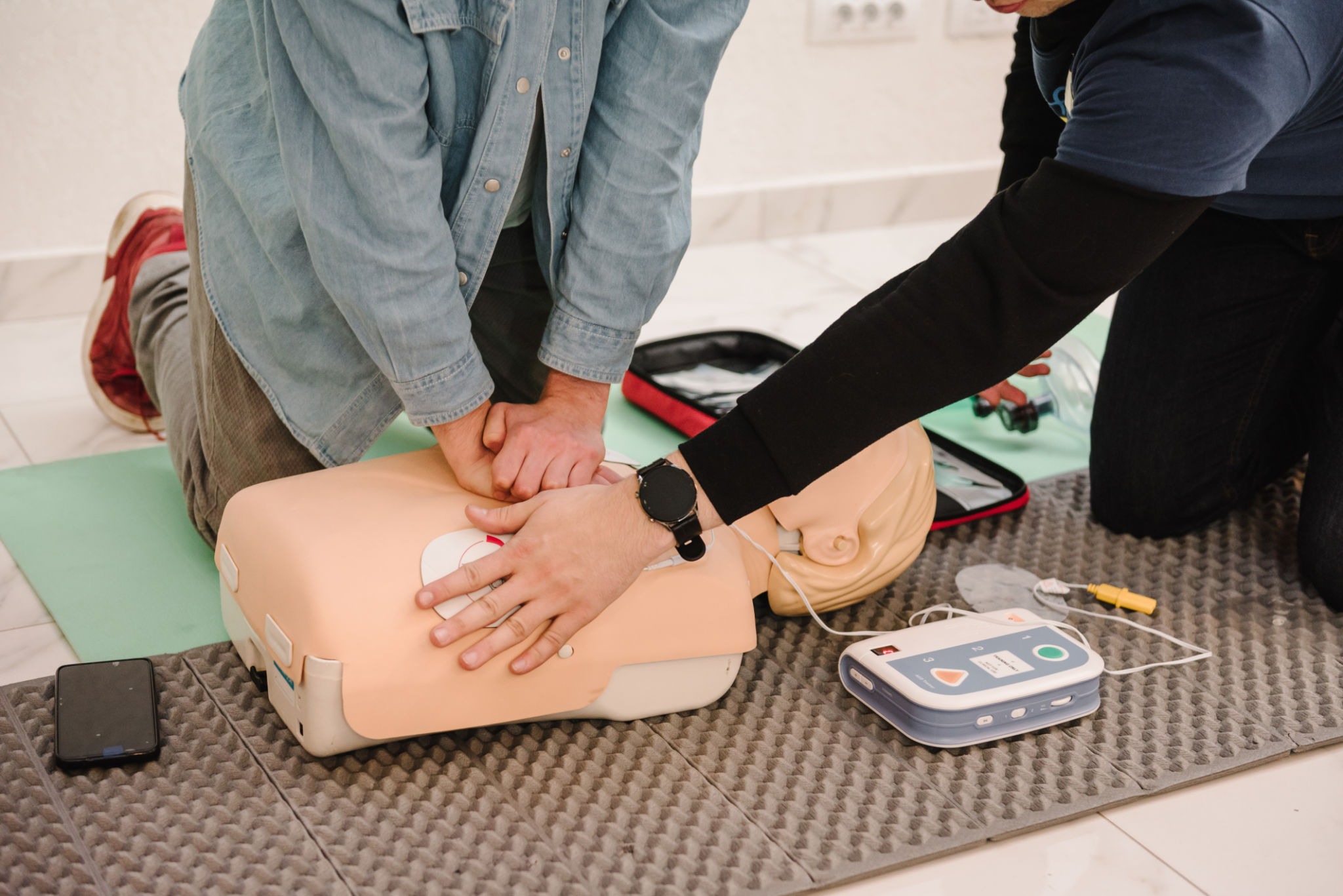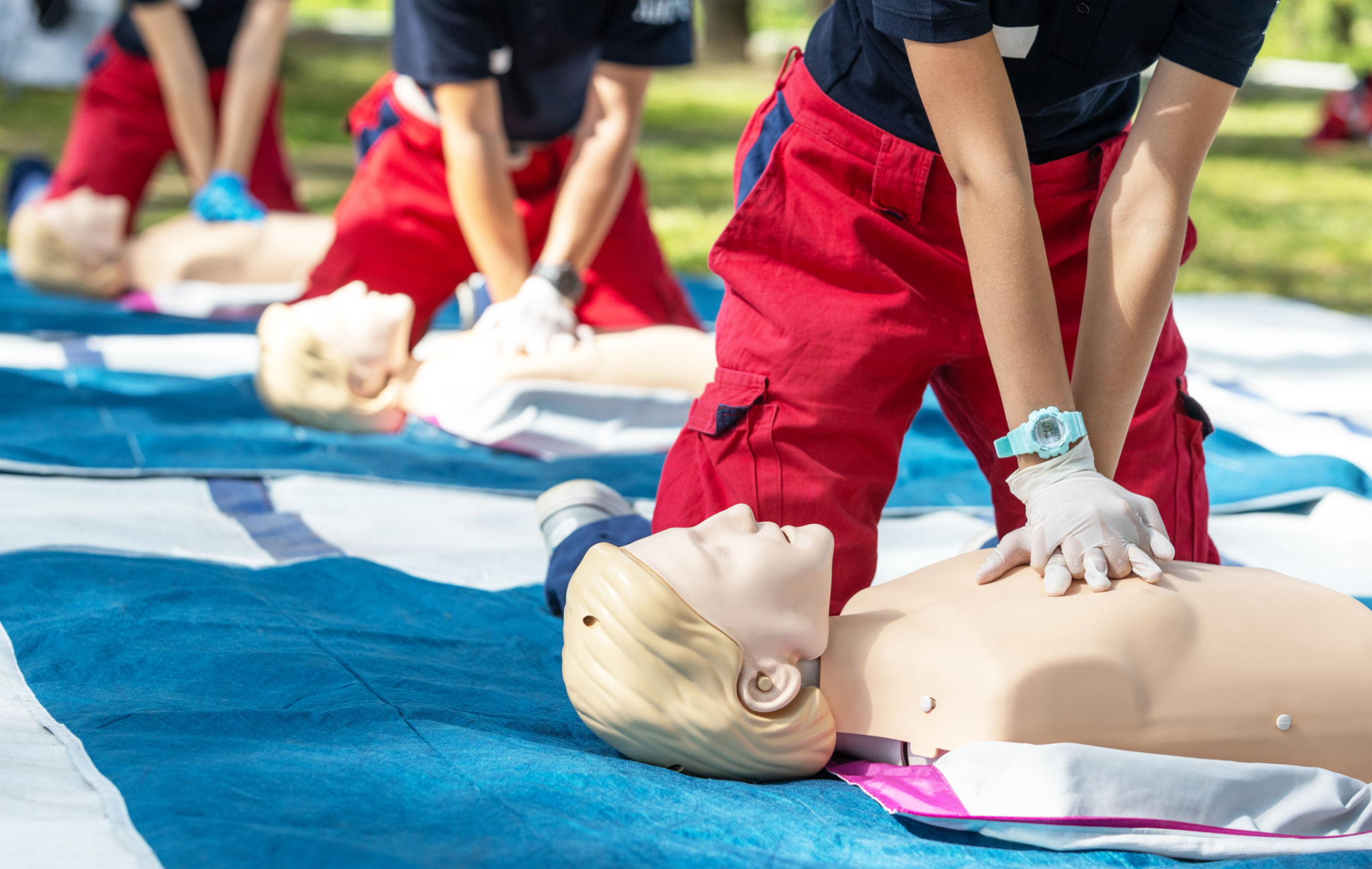Top Misconceptions About CPR and First Aid Training Explained
Understanding CPR and First Aid Training
Cardiopulmonary resuscitation (CPR) and first aid training are crucial skills that can save lives in emergency situations. However, there are many misconceptions surrounding these practices. Understanding the truth behind these myths can help you become better prepared to respond effectively in an emergency.

Misconception 1: CPR is Only for Medical Professionals
Many people believe that CPR is a skill reserved for doctors, nurses, or EMTs. In reality, anyone can learn CPR and perform it effectively. CPR training courses are designed for laypeople, equipping them with the knowledge and confidence to act swiftly in an emergency. By learning CPR, you can be a critical link in the chain of survival.
Misconception 2: CPR Always Requires Mouth-to-Mouth Resuscitation
The traditional image of CPR includes mouth-to-mouth resuscitation, but recent guidelines emphasize the importance of chest compressions over rescue breaths. Hands-only CPR has been shown to be highly effective, especially for bystanders who may be uncomfortable with mouth-to-mouth contact. Continuous chest compressions can maintain blood flow to the brain and vital organs until professional help arrives.

Misconception 3: You Can Cause More Harm Than Good
A common fear is that performing CPR improperly will cause harm. While it's true that there is a slight risk of injury, the potential benefits far outweigh the risks. Without intervention, a person experiencing cardiac arrest has little chance of survival. The American Heart Association stresses that doing something is better than doing nothing. Your actions could make the difference between life and death.
Misconception 4: First Aid Training Is Not Necessary for Everyone
Some people assume that first aid training is only necessary for those in specific professions or environments. However, emergencies can happen anywhere, at any time. Having basic first aid knowledge helps you respond to injuries or sudden illnesses at home, work, or even while traveling. This knowledge empowers you to act confidently and effectively when needed.

Misconception 5: First Aid Kits Are Only for Serious Emergencies
Another misconception is that first aid kits are only useful in severe emergencies. In truth, they are essential for handling minor injuries like cuts, burns, or sprains. A well-stocked first aid kit allows you to administer immediate care and prevent complications before professional medical help is available. Having a kit readily accessible in your home and car ensures you're always prepared.
The Importance of Accurate Knowledge
Dispelling these misconceptions is crucial for encouraging more people to get trained in CPR and first aid. Accurate knowledge equips individuals with the confidence to act decisively during emergencies. Whether you're a parent, teacher, or simply a concerned citizen, learning these skills is a valuable investment in your ability to help others.
To get started, consider enrolling in a local CPR and first aid course. Many organizations offer classes both in-person and online, making it convenient for everyone to gain life-saving skills. Remember, your ability to act could save a life.